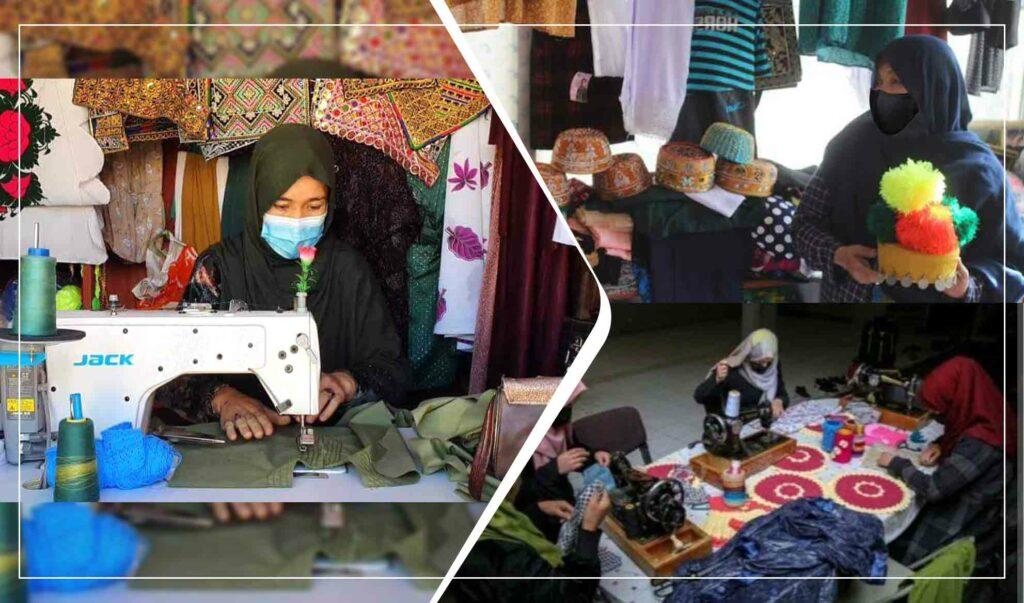NEILI (Pajhwok): While expecting support from the government, a number of female handicraft producers in central Daikundi province say they plan to switch to other alternative professions such as embroidery and tailoring due to lack of buyers.
Daikundi is among provinces where a limited number of men and women work in factories and most rely on handicraft jobs.
Zafran Amiri, is one of such entrepreneurs who has been running her tailoring shop since eight years, says her customers has recently decreased.
Zafran said her monthly income during recent months had reduced and she could not meet her family’s needs.
She said: “My business was good in the past because university and schools were open and we sewed around 16 pairs of clothes on a daily basis but now it is not good. I cannot even pay wages of my factory workers.”
She added if the market becomes favorable for her business again, she plans to employ more women.
Most of the employed women in Daikundi have turned to weaving and tailoring professions. Most of those who worked with the government in the past are now self-employed in this market.
Ruqia Alizada is another woman involved in handicrafts production. She is satisfied with her job, but complained about the stagnation of market and losing her customers.
Alizada said: “As female customers have disappeared from the market, we make only 5 or 6 thousand afghanis income monthly.”
Most of those who worked in tailoring factories in Nieli city are the bread-winners of their families, she added.
Suraya, a worker at an embroidery factory, has been learning this profession since one year and also earns some money to support her family.
Suraya said: “I had a considerable income in the past when I worked in an office, but then I lost my job and stayed at home. Now I work in an embroidery shop, now I am busy and relaxed.”
She asked other unemployed women to look for a work for themselves and learn other professions instead of sitting idle at their houses.
Despite lack of byers and a suitable location for their businesses, the employed women ask the government and other organizations to support them to improve their business.
In light of this fact, officials in the Chamber of Commerce and Investment of Daikundi emphasize on supporting such women’s businesses.
Kareem Salihi, head of the Chamber of Commerce, said a large number of women are involved in their businesses and there is no obstacle for them in that province.
Salehi said: “Around 300 and 350 females work in embroidery and tailoring factories in Daikundi and most of them get considerable income.”
He described their income considerably good but emphasized the department will analyze the situation of their factories to resolve their problems and attract more support from relevant institutions and organizations.
aw/ma







GET IN TOUCH
NEWSLETTER
SUGGEST A STORY
PAJHWOK MOBILE APP